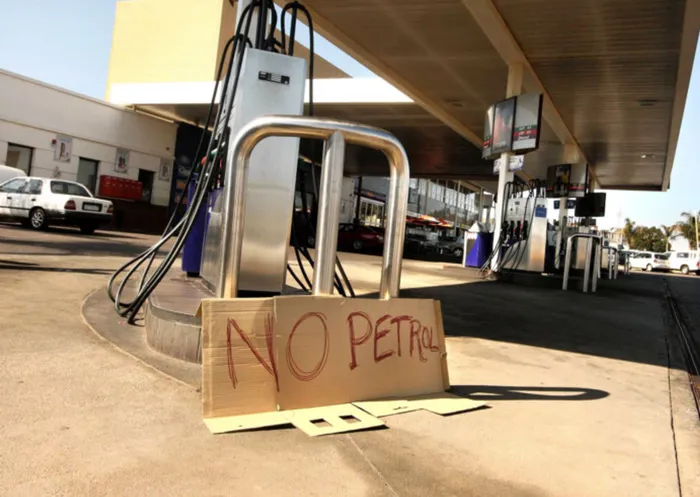
This garage in Langlaagte west of Johannesburg is one of the many stations hit by the ongoing strike. Picture: Simphiwe Mbokazi. This garage in Langlaagte west of Johannesburg is one of the many stations hit by the ongoing strike. Picture: Simphiwe Mbokazi.
As the violent two-week metalworkers strike ends, urgent wage talks in the fuel sector will resume on Monday.
Eight of the nine Numsa regions have accepted the offer, which gives some workers a 10 percent increase, bringing an end to a strike that brought a near-total halt to the second-biggest contributor to GDP.
“Numsa members and our Numsa negotiators defeated the neo-liberal and two-tier labour market proposals of engineering employers… ” said Numsa general secretary Irvin Jim on Monday.
The strike was marred by a series of violent incidents involving Numsa members, but Jim downplayed these, saying people wearing the union’s T-shirts were not necessarily Numsa members.
Numsa said it had also met Minister of Police Nathi Mthethwa and would follow this up with another meeting “to ensure strikes are handled properly”.
In signing the agreement, Numsa has attained the largest gain on the consumer price index (CPI) in the past five years, the settlement taking wages to 5.9 percent above CPI, which is the measure of the cost of consumer goods and services to households.
Numsa has insisted throughout the strike that the CPI was inaccurate as it did not take into account, for example, the dramatic increases in the cost of electricity.
The union also gained some ground in phasing out labour brokers, with employers agreeing not to procure workers from a temporary employment service for longer than four months.
Meanwhile, the National Petroleum Employers’ Association said they hoped the dispute would be settled by Monday afternoon.
Chairman Mxolisi Ratsibe said: “We are putting all our efforts and energy into finding common ground.”
Chemical, Energy, Paper, Printing, Wood and Allied Workers’ Union co-ordinator John Appolis said it was hoping for a new offer from employers on Monday. The last meeting took place on June 24, when talks broke down.
The offer on the table at the time was 7 percent, but the unions were demanding 11 percent. Experts agreed a prolonged strike would lead to critical shortages in products including medical supplies, and would cripple the economy.
FNB chief economist Cees Bruggemans said the longer the strike, the broader the disruptions would be.
“There might have been some shortages this week, but ultimately the economy can handle it, unless it becomes long-lasting.
“Then it will have a fundamental effect on sectors like transport, and this means shortages of all kinds of products, not just fuel,” he said on Sunday.
Meanwhile, fuel shortages are likely to worsen this week, according to Fuel Retailers Association CEO Reggie Sibiya.
No statistics were available for the coming week, but last Friday’s numbers indicate hundreds of stations across Gauteng could still be dry on Monday. - Pretoria News
